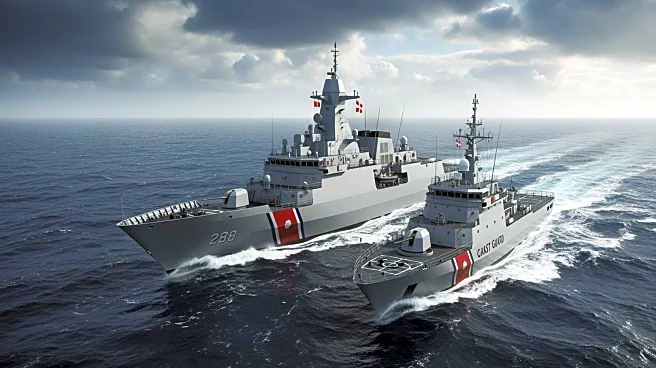What's Happening?
China has deployed naval supply vessels to bolster its coast guard operations in the South China Sea, amid ongoing territorial disputes with the Philippines, a U.S. ally. The deployment aims to enhance the operational availability of the Chinese coast guard in the region.
This move comes as China asserts its claims over maritime features in the South China Sea, which overlap with those of the Philippines. The Chinese coast guard, reportedly the largest maritime law enforcement fleet globally, maintains a strong presence near disputed areas, leading to frequent standoffs with the Philippine coast guard.
Why It's Important?
The deployment of Chinese naval vessels in the South China Sea underscores the ongoing geopolitical tensions in the region, particularly between China and U.S. allies like the Philippines. This development could further strain relations between China and the United States, given the latter's defense commitments to the Philippines. The increased Chinese presence may also impact regional stability and freedom of navigation, which are critical to international trade routes. The situation highlights the broader strategic competition in the Indo-Pacific region, with potential implications for U.S. foreign policy and military strategy.
What's Next?
The continued presence of Chinese naval and coast guard vessels in the South China Sea is likely to prompt responses from the Philippines and possibly the United States. Diplomatic engagements or military maneuvers could be anticipated as stakeholders seek to assert their positions. The situation may also lead to increased international calls for adherence to international maritime laws and the peaceful resolution of disputes.
Beyond the Headlines
The deployment reflects China's broader strategy of expanding its maritime capabilities and influence in the South China Sea. This move could lead to a reevaluation of regional security dynamics and alliances, as countries in the region may seek to bolster their own maritime defenses. The situation also raises questions about the effectiveness of international legal frameworks in resolving territorial disputes.















